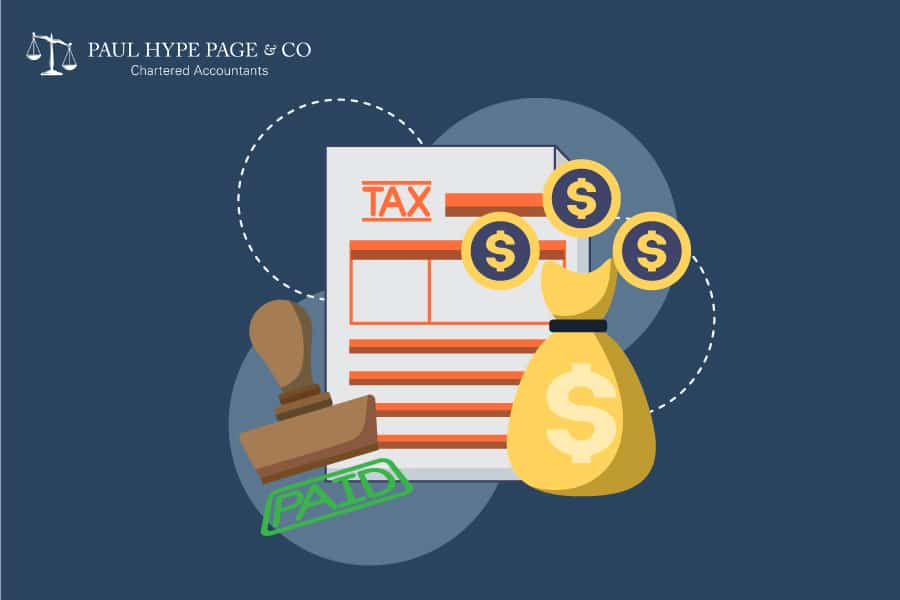Outline
- Certificate of Residence for Individuals in Singapore
- Can a foreigner apply for the COR in Singapore?
- Why do individuals apply for COR?
- Certificate of Residence for Companies in Singapore
- Benefits of Owning a COR in Singapore as a Company
- Can Branches of foreign companies & Foreign-owned investment holding companies incorporated in Singapore obtain COR?
- Conclusion
- FAQs
A Certificate of Residence (COR) in Singapore is a letter stating that you are a tax resident in Singapore to claim benefits under the Avoidance of Double Tax Agreements (DTAs). Singapore Tax Certificate Of Residence in Singapore all individuals and companies are eligible to apply for residence certificates.
Certificate of Residence for Individuals in Singapore
Eligibility to apply COR
The Inland Revenue Authority of Singapore (IRAS) issued Singapore tax residence certificates. Every taxpayer in Singapore is regarded as either a tax resident or non-resident.
To be a Singapore tax resident, one must live or work in Singapore for at least 183 days in the prior calendar year.
Even if this condition is not fulfilled, individuals will nevertheless be regarded as Singapore tax residents. If at least one of these conditions below is fulfilled, the individual may make a COR application.
- if they reside in Singapore and
- can prove that their absences from the country are temporary and reasonable
Can a foreigner apply for the COR in Singapore?
However, if the individual is a foreigner, there is another condition to be fulfilled which is to obtain a working visa to work and stay in Singapore. With Employment Pass is issued by the Ministry of Manpower to those who meet the following criteria:
- Have a job offer or starting a business in Singapore;
- Working in a managerial, specialised, or executive job;
- Earning a fixed monthly salary of at least S$5,000 and possessing the requisite qualifications.
With a visa, you can stay and work in Singapore for more than 183 days therefore qualifying you to apply for COR. As mentioned above, due to work or other commitments whereby you cannot be present for more than 183 days, you can still apply for the COR if you can prove that you have a relationship tie with Singapore such as:
- Family members residents staying in Singapore for extensive period
- Properties and bank accounts
- Job and or businesses
Why do individuals apply for COR?
There are 2 main reasons for applying Singapore Tax Certificate Of Residence (COR) for individuals:
- Individuals apply for a COR to avoid full taxation from a foreign country, especially when one is earning income derived abroad.
- Another reason that drives individuals to apply for COR is that Singapore has signed Avoidance of Double Taxation Agreements (DTAs) with many countries.
A DTA states the taxing rights between Singapore its treaty partner on diverse types of income arising from any economic activity between the two countries. These agreements also support tax reductions on specific types of income.
Thus, a Singapore tax resident will benefit from these exemptions or reductions. If eligible, individuals will receive a certificate of residence from IRAS and can submit it to the foreign tax authority. By submitting the certificate to the foreign tax authority, the individual can prove tax resident status and will be able to claim the tax benefits.
The converse of the above is also true. If a foreign individual is a tax resident of a country with which Singapore has a DTA providing for Singapore income tax exemption on Dependent Personal Services rendered in Singapore, the individual could potentially apply for a tax exemption. To claim the tax exemption, the individual would have to submit a certificate of residence that has been certified by the individual’s home country’s tax authority to the IRAS.
Certificate of Residence for Companies in Singapore
Companies may also apply for Singapore tax certificates of residence. Just like individuals, the IRAS also issues certificates of residence to companies to state that a particular company is a Singapore tax resident.
Tax substance is commonly measured by tax residency. A company is a tax resident in Singapore when the control and management of the company is exercised in Singapore.
How can you achieve tax substance?
- Having local suppliers or customers invoice, contracts, or agreements
- Having a physical or virtual office in Singapore, according to company business activity
- Having local staff located in Singapore
- Contribute CPF for staff working
- Pay employee tax for staff working
If you need to obtain tax residency for COR for your company, Paul Hype Page Solutions:
1. Obtain an employment pass
Obtain an employment pass to live and work in Singapore. This implies that control and management is in Singapore which directly contributes to local tax residency, or that an employee is located in Singapore.
2. Engage local staff through our Shared Services Solution
Our Shared Services Solution enable your business to move by employing physical local staff for multiple roles as below. Having a physical presence in Singapore will contribute to your business substance and meet current requirements from the government
- Admin
- Sales
- Customer Service
- Accounts
- IT
- HR Executive
- Other roles if specifically requested
Eligibility to apply COR
When the IRAS issues a Singapore certificate of residence to a company, it takes the following factors into account before doing so:
- the company’s decision-making body’s power to raise finance and maintain control over the company’s bank accounts;
- declare dividends; approve accounts; appoint people to manage the company’s daily operations; and
- decide on issues related to acquisitions, joint ventures, and mergers.
A company requesting a certificate of residence must provide its full name, registration number, and YA for which the certificate is required to receive the certificate. To receive a certificate, the company’s directors must also live and keep the company’s books and records in Singapore.
The company should be able to supply supporting documents to prove that it exercises its control and management in Singapore. The term “Control and management” is defined as the making of decisions related to the company’s strategic matters or policies.
Examples of such documents include the following:
- Board resolutions and minutes of the Board of Directors’ meetings
- Material contracts signed in Singapore which have to do with the taxpayer’s business
- Any correspondence between the management team or board of directors proving that discussions and decisions were made during meetings conducted in Singapore
Benefits of Owning a COR in Singapore as a Company
In Singapore, a company may use a certificate of residence to
- Establish its eligibility for certain tax exemptions regarding its profits remitted from foreign operations. These profits may include foreign branch profits, dividends, and foreign-sourced income.
- Another benefit eligible companies may receive is like the one received by eligible individuals. It provides tax benefits under DTAs that Singapore has concluded with other countries. New start-up companies that have certificates of residence may also claim a tax exemption. After having its certificate of residence approved by the IRAS, the company becomes eligible for the benefits.
Can Branches of foreign companies & Foreign-owned investment holding companies incorporated in Singapore obtain COR?
Singapore branches of foreign companies are not residents and typically cannot receive a certificate of residence or its benefits. The same is true of foreign-owned investment holding companies. These companies are defined as those which have at least 50% of shares held by foreign companies and shareholders.
They are not regarded as residents because these companies normally act on the instructions of foreign parent companies or shareholders. A holding company owned by a non-Singapore entity with only foreign-sourced income is not a Singapore tax resident.
Despite this, IRAS may issue a certificate of residence if the company can prove that the control and management of the company’s business is exercised in Singapore, as well as that the company has valid reasons for setting up an office here. The company must also satisfy one of the following conditions to qualify for a certificate of residence:
- Having related companies in Singapore that are either tax residents of or have business activities here,
- Receiving support or administrative services from a related company which is based in Singapore, having at least one director based in Singapore who is not a nominee director but holds an executive position; or having at least one key employee based in Singapore.
Foreign Companies that are not incorporate in Singapore
Similarly, non-Singapore incorporated companies are also not regarded as residents because they are managed and controlled by their foreign parent companies. However, the IRAS may issue a certificate of residence to foreign incorporated companies and their Singapore branches if the company can prove that the control and management of the company’s business is exercised in Singapore, as well as that the company has valid reasons for setting up an office there. The IRAS may request additional information about the company at any time.
Variable Capital Company (VCC)
For the Singapore Tax Certificate Of Residence, recently, the Monetary Authority of Singapore confirmed that a Variable Capital Company (VCC) can also benefit from a certificate of residence. A VCC which is a Singapore tax resident can apply for a certificate of residence. Once approved, the certificate will be issued in the VCC’s name, listing all sub-funds receiving income from the same jurisdiction.
A Singapore tax certificate of residence is an extremely important and powerful document for any Singapore tax resident. Having one opens many doors and allows its bearer to benefit from several tax benefits.
Conclusion
It is always a good idea to apply for the Singapore COR as it will come in handy now or in future especially for coal that has overseas business transactions and foreign source income as an investment or operational entity.
FAQs
You can file your application through myTax Portal. Paper application is not accepted.
Yes, all income earned in or derived from Singapore is chargeable to income tax, including winnings
Some countries that have signed DTAs with Singapore are the USA, Malaysia, India, Australia, China, Indonesia, Japan, and many more.
No, Singapore practices progressive tax for the resident taxpayer. The more you earn, the more tax you will need to pay.
About The Author
Share This Story, Choose Your Platform!
Related Business Articles








